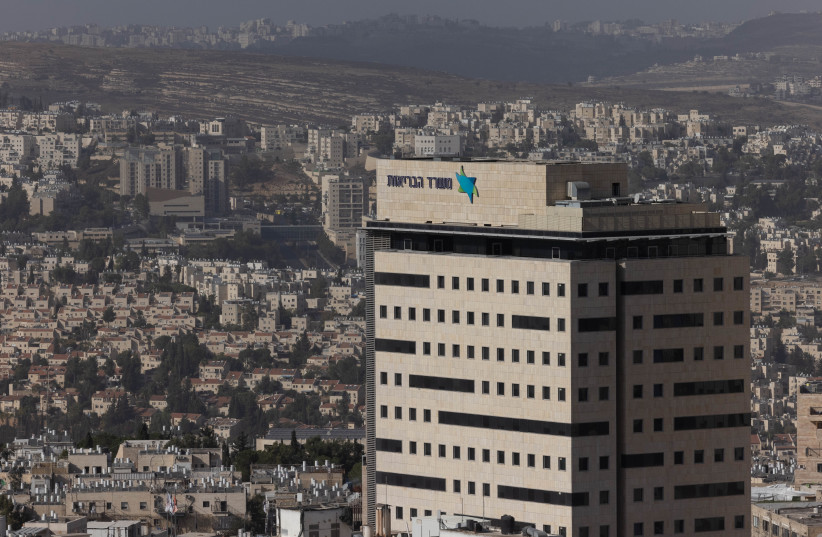Although the rates of medical professionals – doctors, nurses, dentists, occupational therapists, physiotherapists, pharmacists, communications therapists, psychologists, and clinical dietitians – have increased since the beginning of 2022, they are still below the average in the OECD.
This was evident in the Health Ministry’s annual Manpower in the Health Professions annual report issued on Thursday. The aim of the report is to help decision-makers and researchers plan the workforce in the health professions here.
According to the report, there was an upward trend in most health professions in the last decade. The data for 2023 indicate an increase in manpower in the various health professions. For example, in 2022, there was a slight decrease in the number of new licenses in medicine, but nevertheless, the data for last year showed an upward trend, with 2,486 new licenses.

Health Minister Uriel Bosso said that since October 7, the public health system has shown its high capabilities and the professionalism of the excellent medical teams that work there around the clock. The very large number of wounded and the growing need for medical assistance in a variety of field emphasize the challenge of increasing medical manpower.
The number of medical students has risen, he continued. “In the mental health system, we published a grant program for psychologists in the public sector and are working on salary agreements in psychiatry and other fields. There are many challenges, and we are committed to finding solutions regarding manpower and ensuring public health in the immediate term and looking forward to the future."
Ministry Director General Moshe Bar Siman Tov commented that the Israeli health system is one of the best in the world, mainly due to its high-quality personnel. “They have treated thousands of physically and mentally harmed soldiers and civilians. We understand that in order to respond to future challenges, the number of practitioners in the public health system must be expanded.”
Even before the Gaza war, we have worked in the last year to increase the number of new medical students with the goal of increasing to 2,000 students each year by the end of the decade, as well as to increase the number of nurses, said the director-general.
The rate of employed physicians increased to 3.4 per 1,000 inhabitants in 2021, from 3.2 per 1,000 inhabitants in 2018. This figure is lower than the average of the OECD countries which is 3.7. The rate of medical school graduates in Israel is lower than the average of the OECD countries, and stands at 6.8 per 100,000 in 2021 and 14.3 in 2018. This year, 1,200 students began their medical studies when, according to the ministry’s strategic plan. The number of medical students will be increased annually so that at the end of the decade, 2,000 medical students will start each year.
At the end of 2022 there were 44,840 registered doctors, of which 33,558 were doctors up to the age of 67 and 39,768 up to the age of 75. But not all of them are working in clinics and hospitals.
In 2021, there were 19,134 employed female and male specialist doctors – or 2 per 1,000 residents. About half of them were aged 55 or older.
The rate of employed nurses stands at 5.3 per 1,000 residents on average for the years 2020-2022, a rate much lower than the OECD average of 9.9. In 2023, 4,107 nursing licenses were issued.
The number of new licenses for psychologists is on the rise, with 700 issued in 2023, and 624 new licenses in 2022, an increase from 511 in 2010, with most of them trained in Israel.
As part of the 2024 state budget, the budgets allocated to the field of mental health were increased, for a total of about NIS 1.4 billion in two years. As part of this, the health funds will be budgeted in order to double the number of treatments in the field and standards and specialists will be added to the hospitals. A grant will be awarded to psychologists who commit themselves to remain in the public system, as well as another grant to encourage psychologists to expand the scope of their work in the public sector.
In 2021, the rate of employed dentists was 0.85 per 1,000 residents; this figure is higher than the OECD average of 0.71. The number of new licenses in dentistry is on an upward trend, when in 2023, 564 new licenses in dentistry were issued, and in 2022, 534 monthly licenses were issued, of which 16% were to Israeli graduates and 57% to Israelis who graduated abroad. About a fifth of the dentists were aged 67 or older and 40% were up to the age of 45.
In 2021, the proportion of pharmacists employed in Israel was 0.77 per 1,000 residents – a figure lower than the OECD average of 0.89.
A total of 135 licenses were issued in physiotherapy, with a total of 7,331 physiotherapists up to the age of 67. In 2022, 344 new licenses were issued to dietitians and 372 communication therapist licenses were issued. In 2023, 623 new occupational therapy licenses were issued.
